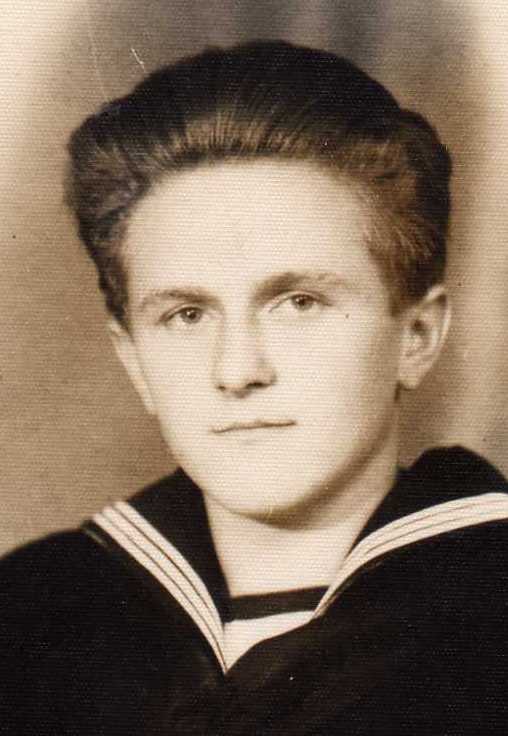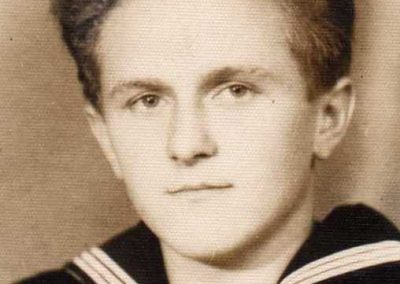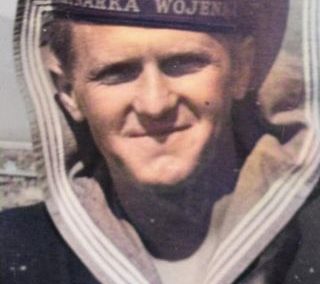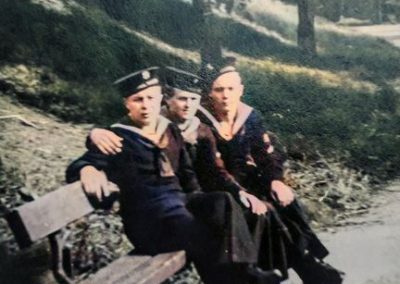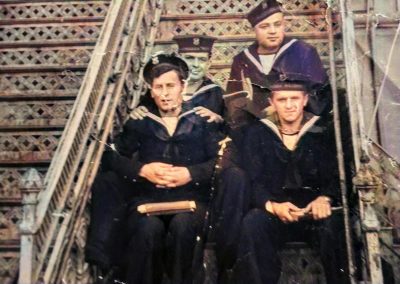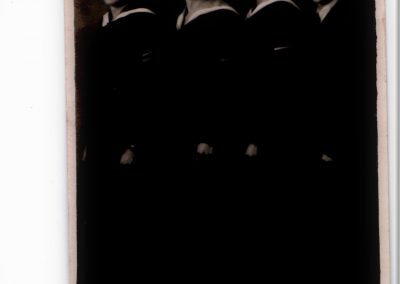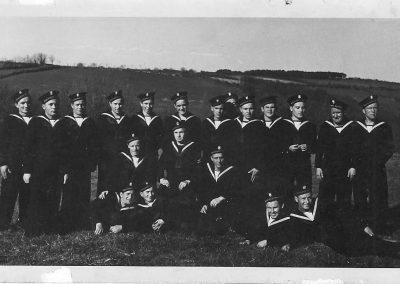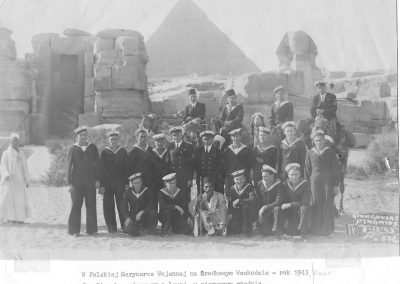Jan Stepek was originally deported to the Archangelregion in the Soviet Union in February 1940. When Stalin released the imprisoned Poles, Jan began an epic journey south to Kazakhstan. Jan eventually joined the Polish Army, before transferring to the Polish Navy.
“My father’s sequence of events was unusual, if not unique. Like most of those who survived the Soviet deportations he and his family eventually got to Polish officials in Kazakhstan or Uzbekistan. Cooped up in a collective farm doing forced labour in Jan/Feb 1942, having left their labour camp in Archangel region in October 1941, Dad heard there was an enlistment centre of sorts in Chok Pak, about fifty kilometres from where he was. So he walked, half-starved, and enlisted with Anders’ Army on 10 Feb 1942. Within days he caught typhus which meant he couldn’t leave with the bulk of the troops to Persia in March/April. He had to wait till 14 August to cross the Caspian to freedom. By this time he had had dysentery, which he caught again shortly after arriving in Pahlevi, Persia.
He was hospitalised there, and again, in Tehran, where he was diagnosed with malaria, which he had until December 1942. On 10th of that month he travelled to rejoin the army, who were now in Basra, Iraq. There he fell ill again, disease unknown, but he figured that another bout would kill him off as the accumulation of illnesses was so weakening him. So when he heard / read that the Polish Navy was seeking recruits he applied and got the thumbs up to transfer. According to the war records this he speedily went round Africa, arriving in England on 1st March 1943, and travelled by train to Kinghorn, Fife, Scotland for core training, then was formally enlisted into the Polish Navy on 11th of that month in, I think, Plymouth. By June he was serving on the Krakowiak in the campaigns to liberate the Greek islands, Sicily, then Italy, finally D Day / Normandy landings. After that he was transferred to the Slazak, and his last active campaign was taking Wilhelmshaven in northern Germany in 1945.”
“Jan’s uncertainty as to the future, and what might happen to the Polish troops now that the war was over for months, took a sudden turn for the better.The British Government allowed Polish armed forces to remain in the United Kingdom if they were unwilling to go back to their homeland, now occupied by the Soviet Union. Moreover the troops were included in those eligible for grants to study particular subjects at various colleges and universities across the country.
Jan was desperate to leave the Navy and try to find a new life for himself, whether here in the UK, or perhaps use the country as a stepping stone to better opportunities elsewhere. Already some Polish exiles were making plans to emigrate to Canada, America, or Australia.
Jan’s first choice of study was Physics but he was immediately refused on grounds that certain foreign groups were not allowed to study this particular subject. It was the era of the Cold War and the nuclear age. Jan had been in the Soviet Union for two and a half years, and no matter the reason for this he was deemed a potential spy who could, in due course, steal the West’s nuclear information.
Undaunted, he applied for another course and was accepted for this second option, to study radio and television engineering. His experience of working and maintaining radar systems stood him in very good stead for this. So on 19th January 1946 Jan was seconded – he was still officially in the Navy – to the Radio and Television College in Renfrew Street, Glasgow. So almost three years after he first set foot on Scottish soil for army training in Fife, fate had taken him back to this far off corner of Europe, so distant from his home.”

